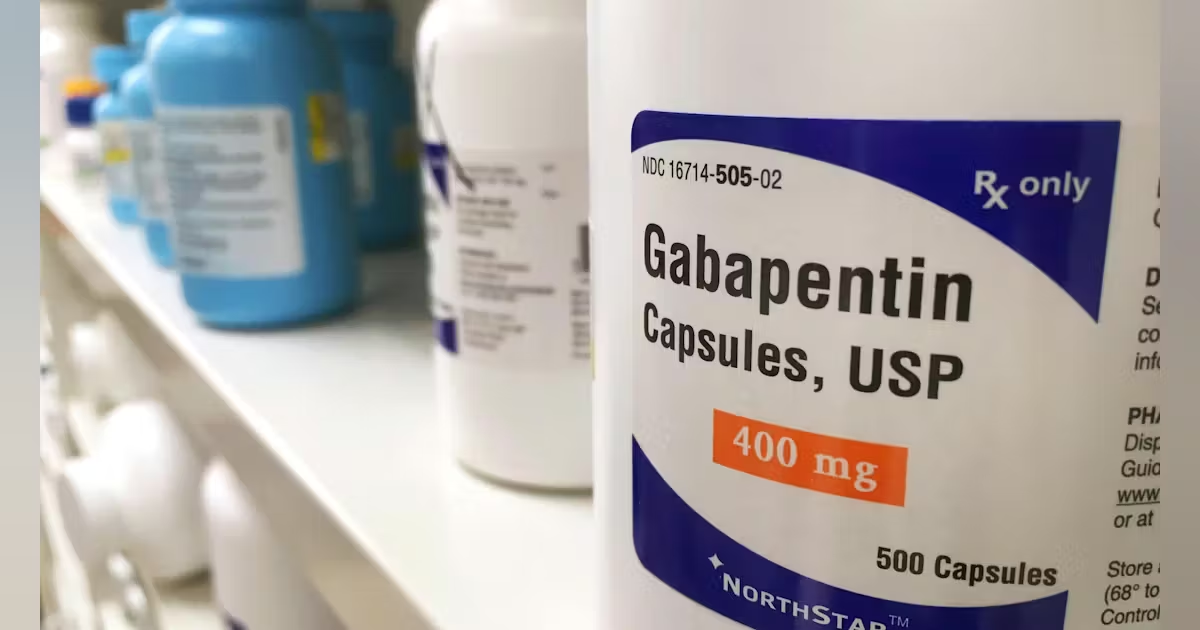Last Updated: October 30, 2025
Addiction, Side Effects, Recovery and Getting Help
Gabapentin is a commonly prescribed medication used to treat nerve pain, seizures, and conditions like restless legs syndrome. For some, it provides much-needed relief. However, for others, it can lead to serious side effects, dependence, and withdrawal symptoms. This article delves into how gabapentin can impact users and shares real-life stories to highlight the importance of monitoring its use.
What is Gabapentin?
Gabapentin is typically prescribed for several conditions, including:
- Seizures: Helps control certain types of epilepsy.
- Nerve Pain: Alleviates pain from conditions like diabetes or shingles.
- Restless Legs Syndrome: Eases discomfort in the legs.
While many people experience relief from these conditions, gabapentin can also cause negative side effects, and in some cases, even lead to physical dependence or addiction. Jason and Emily’s experiences clearly demonstrate these risks.
Jason’s Story: Dependence
Jason, a 42-year-old warehouse worker, was prescribed gabapentin for chronic back pain. Initially, the medication helped him manage his discomfort. However, over time, he realized he needed higher doses to achieve the same relief.
"I didn’t think of it as addiction at first," Jason explained. "But I couldn’t function without it."
- Jason
As his dependence grew, Jason decided to stop taking gabapentin, but withdrawal hit him hard. He experienced insomnia, nausea, and intense mood swings. The withdrawal symptoms were so severe that he couldn’t manage them on his own, even though he had been following his doctor’s instructions. Jason’s story illustrates how physical dependence can develop with long-term use, even when the medication is prescribed by a healthcare provider.
Emily’s Experience: Mood Swings and Anxiety
Emily, a 35-year-old marketing professional, was prescribed gabapentin to manage nerve pain following a car accident. Initially, the medication worked well for her, but within a few weeks, she began noticing significant changes in her mood and mental state.
"I started feeling really anxious, and my mood would swing from calm to irritable very quickly," Emily recalled. "I also noticed that I couldn’t concentrate at work and felt a bit disconnected from everything around me."
- Emily
Despite discussing these issues with her doctor, the side effects persisted, and Emily found it harder to function in her daily life. Her case highlights how gabapentin’s side effects can go beyond physical symptoms to affect mental health, such as mood swings and anxiety. While it helped alleviate her pain, the emotional toll made it difficult for her to manage her professional and personal life.
After realizing the negative impact on her emotional well-being, Emily worked closely with her doctor to adjust her medication. Over time, with proper support, she was able to regain a better balance.
Gabapentin Side Effects
Gabapentin can cause both mild and severe side effects. Some of the more common ones include:
- Dizziness
- Drowsiness
- Nausea
However, in some cases, it can also lead to more serious issues such as:
- Mood swings
- Anxiety or depression
- Suicidal thoughts
- Memory problems
These side effects can significantly disrupt daily life. If you experience any of these, it’s essential to speak with your doctor about potential adjustments.
Gabapentin Dependence and Misuse
Gabapentin can be addictive, especially when taken in high doses or for prolonged periods. Some signs of misuse include:
- Taking more than prescribed
- Using gabapentin for non-medical reasons (e.g., to get high)
- Craving the drug
- Continuing use despite negative consequences
Jason’s experience serves as a strong reminder that even medications prescribed by doctors can lead to dependence. If you or someone you know shows signs of addiction, seeking professional help is crucial to prevent further harm.
Withdrawal Symptoms When You Stop?
Stopping gabapentin suddenly can trigger withdrawal symptoms, which can range from mild to severe. Common withdrawal symptoms include:
- Anxiety
- Insomnia
- Nausea
- Sweating
In more severe cases, withdrawal can lead to:
- Seizures
- Hallucinations
- Agitation
Jason’s struggle with withdrawal demonstrates how challenging it can be to stop gabapentin abruptly. To avoid serious symptoms, it’s essential to work with your healthcare provider to gradually taper off the medication.
How to Manage Side Effects and Withdrawal
If you’re experiencing side effects or withdrawal symptoms, here are a few strategies to help manage them:
- Talk to your doctor: Discuss any concerns with your healthcare provider. They can adjust your dosage or offer alternatives.
- Taper off slowly: If you need to stop taking gabapentin, do so under medical supervision to reduce withdrawal symptoms.
- Seek support: Therapy or support groups can provide emotional assistance during this challenging time.
- Maintain a healthy lifestyle: Eating well, exercising, and practicing relaxation techniques like meditation can help reduce stress.
Where to Find Help in South Africa
If you’re in South Africa and need support, the following helplines are available:
- Substance Abuse Helpline: 0800 12 13 14
- SADAG (Depression and Anxiety Group): 0800 567 567
- Alcoholics Anonymous SA: 0861 435 722
- Narcotics Anonymous SA: 083 900 6962
These services are free and available 24/7 to provide confidential support.
Final Thoughts
Gabapentin can be an effective medication for managing nerve pain and seizures, but it comes with potential risks. Jason and Emily’s stories show how, despite being prescribed by doctors, gabapentin can lead to dependence, emotional challenges, and withdrawal symptoms.
If you or someone you know is struggling with gabapentin’s side effects or withdrawal, don’t hesitate to seek help. With the right support, you can manage the challenges and regain control of your health.
Want to learn more about addiction programs? Visit our outpatient Addiction Treatment Programs page for more information.
Opioid Addiction is rising in the USA, if you know someone that is struggling with Opioids see our Opioid Addiction page for more information.
Drug Rehab New Hampshire
Dr. Mitchell G. Cohen is a board-certified Internal Medicine specialist with over 34 years of experience in patient-centered healthcare. A graduate of Hahnemann University School of Medicine, Dr. Cohen completed his internship at the University Health Center of Pittsburgh, where he gained invaluable hands-on experience. He is also a certified addiction specialist, holding membership with the American Society of Addiction Medicine (ASAM).
Currently based in Nashua, NH, Dr. Cohen is affiliated with Saint Joseph Hospital, where he provides comprehensive care focusing on both internal medicine and addiction treatment. His expertise includes prevention, diagnosis, and management of adult diseases, as well as specialized care for individuals facing substance use disorders.
Dr. Cohen is committed to fostering open communication, ensuring his patients are fully informed and empowered to make confident decisions about their health and treatment options.

MD Mitchell Grant Cohen
Dr. Mitchell G. Cohen is a board-certified Internal Medicine specialist with over 34 years of experience in patient-centered healthcare. A graduate of Hahnemann University School of Medicine, Dr. Cohen completed his internship at the University Health Center of Pittsburgh, where he gained invaluable hands-on experience. He is also a certified addiction specialist, holding membership with the American Society of Addiction Medicine (ASAM).
Currently based in Nashua, NH, Dr. Cohen is affiliated with Saint Joseph Hospital, where he provides comprehensive care focusing on both internal medicine and addiction treatment. His expertise includes prevention, diagnosis, and management of adult diseases, as well as specialized care for individuals facing substance use disorders.
Dr. Cohen is committed to fostering open communication, ensuring his patients are fully informed and empowered to make confident decisions about their health and treatment options.
- MD Mitchell Grant Cohen
- MD Mitchell Grant Cohen
- MD Mitchell Grant Cohen
- MD Mitchell Grant Cohen
- MD Mitchell Grant Cohen
- MD Mitchell Grant Cohen
- MD Mitchell Grant Cohen
- MD Mitchell Grant Cohen
- MD Mitchell Grant Cohen
- MD Mitchell Grant Cohen
- MD Mitchell Grant Cohen
- MD Mitchell Grant Cohen
- MD Mitchell Grant Cohen
- MD Mitchell Grant Cohen
- MD Mitchell Grant Cohen
- MD Mitchell Grant Cohen
- MD Mitchell Grant Cohen
- MD Mitchell Grant Cohen
- MD Mitchell Grant Cohen
- MD Mitchell Grant Cohen
- MD Mitchell Grant Cohen
- MD Mitchell Grant Cohen
- MD Mitchell Grant Cohen
- MD Mitchell Grant Cohen
- MD Mitchell Grant Cohen
- MD Mitchell Grant Cohen
- MD Mitchell Grant Cohen
- MD Mitchell Grant Cohen
- MD Mitchell Grant Cohen
- MD Mitchell Grant Cohen
- MD Mitchell Grant Cohen
- MD Mitchell Grant Cohen
- MD Mitchell Grant Cohen
- MD Mitchell Grant Cohen
- MD Mitchell Grant Cohen
- MD Mitchell Grant Cohen
- MD Mitchell Grant Cohen
- MD Mitchell Grant Cohen
- MD Mitchell Grant Cohen
- MD Mitchell Grant Cohen
- MD Mitchell Grant Cohen
- MD Mitchell Grant Cohen
- MD Mitchell Grant Cohen
- MD Mitchell Grant Cohen
- MD Mitchell Grant Cohen
- MD Mitchell Grant Cohen
- MD Mitchell Grant Cohen
- MD Mitchell Grant Cohen
- MD Mitchell Grant Cohen
- MD Mitchell Grant Cohen
- MD Mitchell Grant Cohen
- MD Mitchell Grant Cohen
- MD Mitchell Grant Cohen
- MD Mitchell Grant Cohen
- MD Mitchell Grant Cohen
- MD Mitchell Grant Cohen
- MD Mitchell Grant Cohen
- MD Mitchell Grant Cohen
- MD Mitchell Grant Cohen
- MD Mitchell Grant Cohen
- MD Mitchell Grant Cohen
- MD Mitchell Grant Cohen
- MD Mitchell Grant Cohen
- MD Mitchell Grant Cohen
- MD Mitchell Grant Cohen
- MD Mitchell Grant Cohen
- MD Mitchell Grant Cohen
- MD Mitchell Grant Cohen
- MD Mitchell Grant Cohen
- MD Mitchell Grant Cohen
- MD Mitchell Grant Cohen
- MD Mitchell Grant Cohen
- MD Mitchell Grant Cohen
- MD Mitchell Grant Cohen
- MD Mitchell Grant Cohen
- MD Mitchell Grant Cohen
- MD Mitchell Grant Cohen
- MD Mitchell Grant Cohen
- MD Mitchell Grant Cohen







